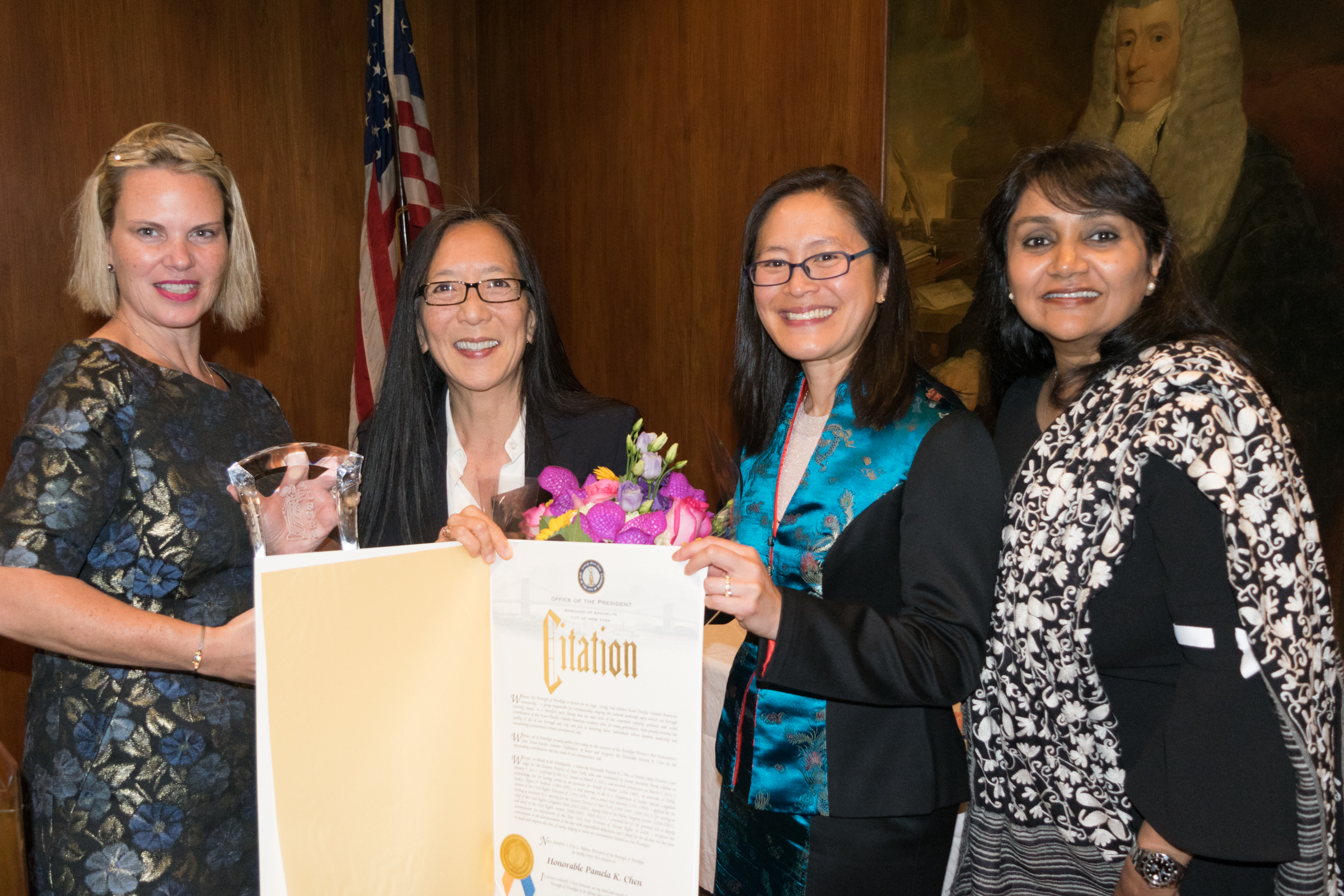Brooklyn Women’s Bar hosts its first Asian and Pacific Islander Heritage celebration

The Brooklyn Women’s Bar Association hosted its first-ever Asian American and Pacific Islander Heritage celebration at which it honored Judge Pamela Chen, a U.S. District Court judge for the Eastern District of New York.
The event was co-chaired by Hon. Lillian Wan, the president of the Asian American Judges Association of New York (AAJANY), Hemalee Patel and Laura Ashikaga. It was co-sponsored by the AAJANYS, the Asian American Bar Association of New York and the South Asian Bar Association of New York.
“This is the first time the BWBA, the AAJANY, the SABANY and the AABANY have co-sponsored an event to celebrate the culture, traditions and history of Asian Americans and Pacific Islanders in the United States,” said Judge Wan. “The month of May was chosen to commemorate the immigration of the first Japanese to the United States on May 7, 1843, and to mark the completion of the Transcontinental Railroad on May 10, 1869.”

Brooklyn Boro
View MoreNew York City’s most populous borough, Brooklyn, is home to nearly 2.6 million residents. If Brooklyn were an independent city it would be the fourth largest city in the United States. While Brooklyn has become the epitome of ‘cool and hip’ in recent years, for those that were born here, raised families here and improved communities over the years, Brooklyn has never been ‘uncool’.